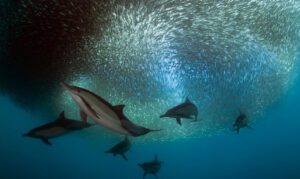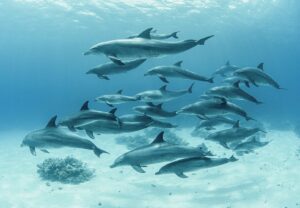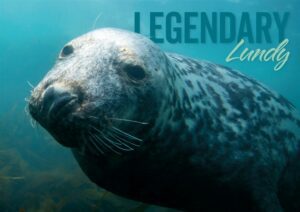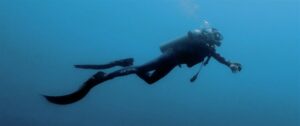Scientists are calling for more research into how plastic pollution is having an effect on large filter feeders such as whales, sharks and rays.
These sea creatures could be ingesting hundreds of small pieces of plastic each day, a study in the Trends in Ecology and Evolution journal states.
Tiny floating microplastics could further reduce population sizes of large filter feeders, according to the BBC News report, but there is little research being done to look into the risks.
Data on threats to large filter feeders from microplastics has been looked at by researchers from the US, Italy and Australia. These fragments of plastic, which are less than five millimetres long, can be harmful to marine life and the ocean.
The news report states that, ‘the Gulf of Mexico, the Mediterranean Sea, the Bay of Bengal and the Coral Triangle are priorities for monitoring, according to a review of studies.’
“The full magnitude of risks of ingesting microplastics are yet to be fully investigated,” Elitza Germanov of Murdoch University, Australia, and researcher at the US Marine Megafauna Foundation told The BBC.
Germanov added that the potential risks could be ‘reduced nutritional uptake and damage to the digestive system when microplastics are ingested.’ Aside from this, the toxin exposure from swallowing plastic ‘could affect many biological processes, such as growth and reproduction, putting filter feeding populations “under even more strain.”’
The study claims that these large filter feeders should be prioritised for further research into the impact of microplastics, since they swallow hundreds of cubic metres of water a day to capture food from water – with some plankton being similar to microplastics in terms of size and mass.
Co-researcher Prof Maria Fossi of the University of Siena in Italy, also told The BBC: “Our studies on whale sharks in the Sea of Cortez and on fin whales in the Mediterranean Sea confirmed exposure to toxic chemicals, indicating that these filter feeders are taking up microplastics in their feeding grounds.
“Exposure to these plastic-associated toxins pose a major threat to the health of these animals since it can alter the hormones, which regulate the body's growth and development, metabolism, and reproductive functions, among other things,” she added.
According to the researchers, 800kg of plastic was discovered in the carcass of a stranded whale in France, while another whale in Australia ‘contained six square metres of plastic sheeting as well as 30 whole plastic carrier bags.’
Germanov explained to The BBC: ”It is worth highlighting that utilising these iconic species, such as whale sharks, manta rays and whales to gain the attention of and engage with communities, policy makers and managers will go far to enhance stewardship of entire marine ecosystems.”







